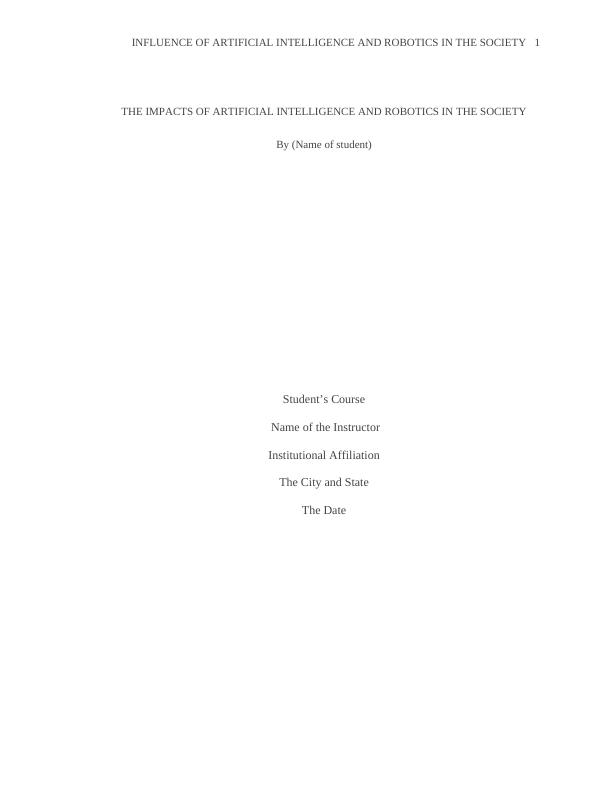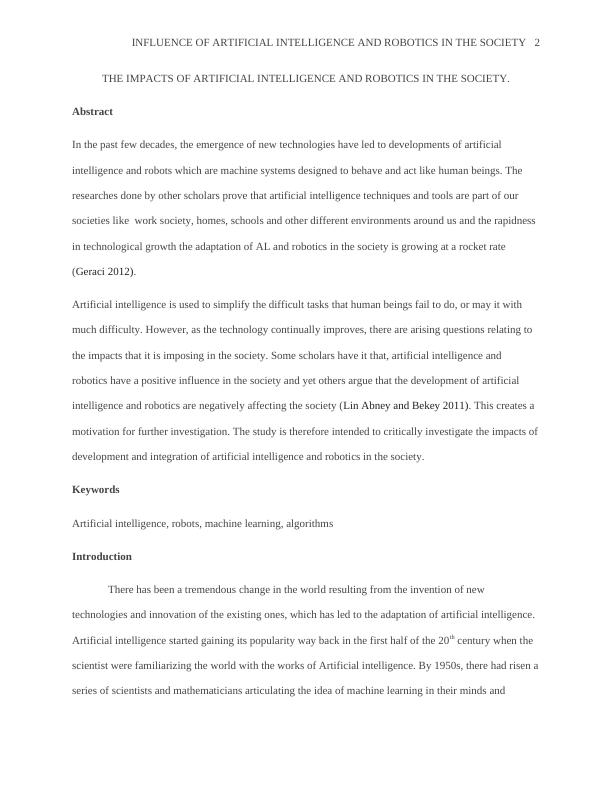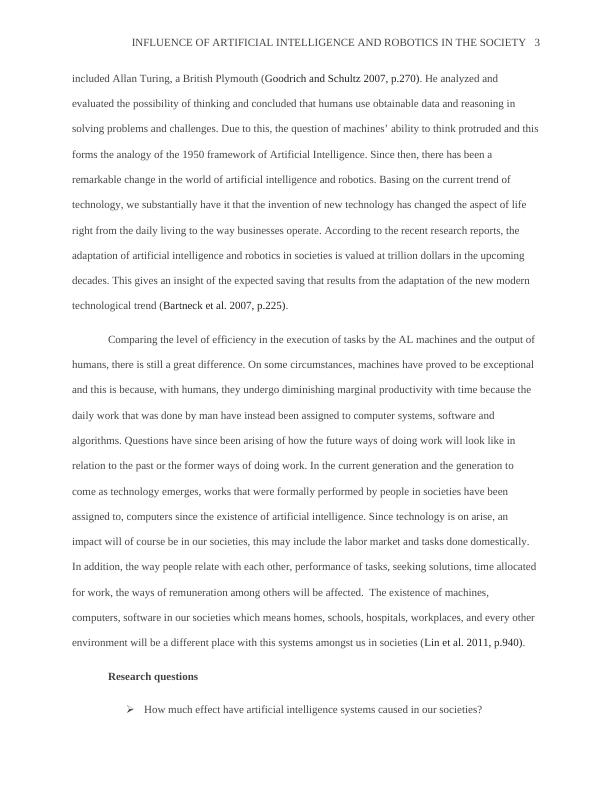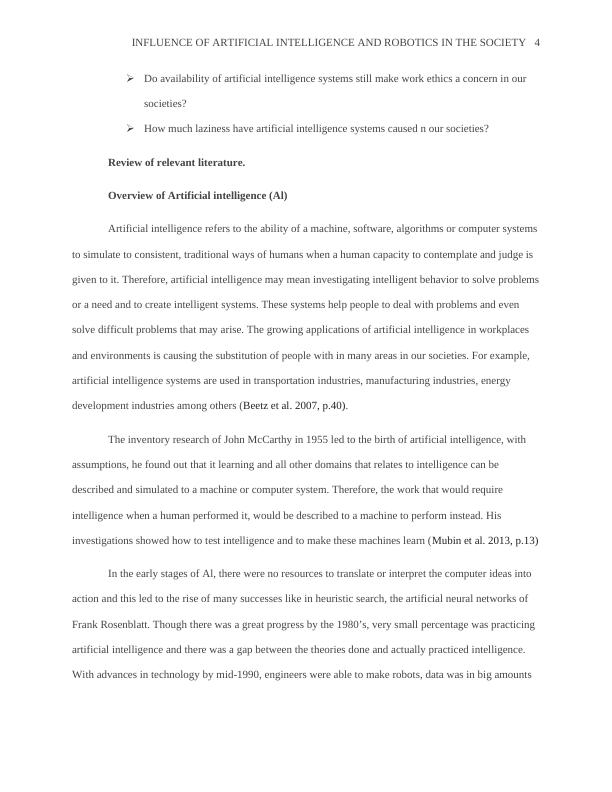The Impacts of Artificial Intelligence and Robotics in the Society
14 Pages4231 Words427 Views
Added on 2023-06-12
About This Document
This research paper investigates the impacts of artificial intelligence and robotics in society. It explores the positive and negative effects of AI and robotics in our daily lives, including the labor market, domestic tasks, and the way people relate to each other. The paper also discusses the different types of AI and robotics techniques and tools, and the reasons why they are used. The research methodology includes the questionnaire and interview methods. Keywords: Artificial intelligence, robots, machine learning, algorithms.
The Impacts of Artificial Intelligence and Robotics in the Society
Added on 2023-06-12
ShareRelated Documents
End of preview
Want to access all the pages? Upload your documents or become a member.
AI Development in the Past Twenty Years
|10
|3397
|265
Managing Employees in an AI Hybrid Framework Assignment
|25
|5375
|181
Artificial Intelligence: A Study on Its Uses in Day to Day Lives
|7
|1666
|306
Accounting Theory & Contemporary Issues
|7
|2041
|216
Artificial Intelligence Is Artificial Intelligence A Threat to Humanity?
|9
|2643
|447
Technological Change and its Impact on HRM Activities
|18
|3419
|98




